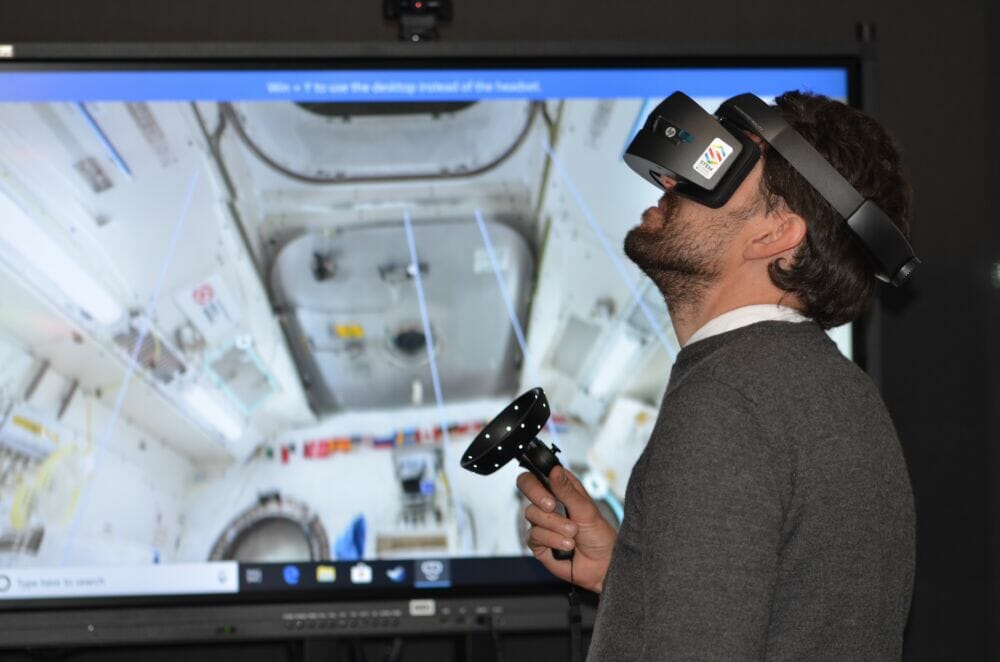~ Potential benefits of the industrial metaverse ~
Metaverse seems to be the buzzword of 2022. The term, coined in 1992 by sci-fi novelist Neal Stephenson, represents for some the future of Internet, while for others it is merely a “souped-up version of virtual reality”. Regardless of different opinions, we will need to wait at least another decade to see the full spectrum of the metaverse’s features. In the meantime, Neil Bellinger, head of EMEA at automation parts supplier EU Automation, explains how manufacturers could benefit from using the metaverse in the future.
The popularity of the metaverse shows in its market size, which reached 47.69 billion USD in 2020 and is expected to grow at a compound annual rate of 43.3 per cent by 2028, according to Emergen Research.
Recently, the first virtual factory set in a metaverse environment opened in South Korea where, using VR glasses, visitors can witness the manufacturing process of plastic screws and operate machines. The virtual factory can change settings such as the pressure of the injection moulding machine or the speed of the production process, without the need to shut the factory off. In the future, the factory floor might witness a revolutionary transformation from implementing the metaverse’s features.
A new level of simulation
Despite the existence of digital twins in the industry, the metaverse will be capable of taking the simulation environment to a whole new level. While digital twins mirror existing equipment, the metaverse doesn’t require connection with physical assets.
Simulations in a metaverse environment allow manufacturers to test thousands of potential scenarios for their ecosystems and choose the best strategies for their company. By doing this, they not only have real-time insights into how their equipment is performing, but they can also predict the results of upscaling or downscaling situations even decades from now.
Continuous simulations offer manufacturers a few advantages to boost their competitiveness. First, they allow them to answer not only ‘what-if’ questions about potential choices, but also identify ‘how-to’ plans for optimising and automating their facilities. Metaverse simulations also offer the possibility to maintain a continuous and effective visibility of the entire production line and its future.
This model will be particularly helpful in automotive. Companies will be able to simulate how a car’s behaviour will change according to weather, pollution or the presence of other vehicles on the road, to increase its safety and ease of use.
BMW is already implementing a similar strategy with its virtual factory, which simulates robots and human workers that make drivetrains for electrical vehicles. The company replicates the entire production line to ensure the process runs smoothly before expanding it. So far, BMW uses digital twins to perform these tasks, but its executives foresee a future where they’ll add virtual robots to communicate among themselves and find the best course of action.
Increased safety
One of the greatest advantages of using metaverse simulations is the level of safety they bring. As the platform does not need to link to existing assets, it can perform dangerous simulations without harming human workers or robots. One example could be experimenting with robots colliding to enhance their future safety features.
The platform can also increase safety for human workers by simulating their avatars while grabbing tools and assembling components to find the most ergonomic strategies and reduce health issues and accidents.
The metaverse will also help reduce costs and waste by accurately predicting how many workers are required for a job and what machines are needed for each application.
While we do not know for sure how the future of manufacturing will look like once the metaverse becomes mainstream, we can continue the conversation on potential benefits. From enhancing simulations and predictive maintenance to increasing the safety of human and robot, the metaverse is likely to revolutionise the factory floor.
If you wish to stay informed about the developments of the industrial metaverse, visit EU Automation’s Knowledge Hub.







